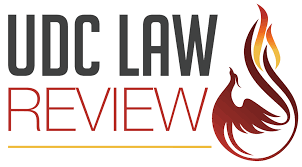
Abstract
Low-income tenants in the U.S. have weak bargaining power as well as limited housing and mobility options in the housing market. With no enforceable "right to housing," tenants are stuck-quite literally in the case of uninhabitable property - in unsafe and unhealthy living conditions. Poverty and economic instability make it challenging for tenants either to leave or to force repairs to substandard rental units. The author completed an empirical study of eviction cases in New Orleans in order to quantify the problem of evictions, learn more about where evictions occur throughout the municipality, and better understand who is evicted. The author's study was anchored by her experience representing tenants through her law clinic teaching practice. The author embarked on the empirical study as a participatory research endeavor in collaboration with a local community group whose organizational mission centers on affordable housing. Using the court's responses to the author's public records requests and incollaboration with two social scientists the author mapped the eviction geography of New Orleans through quantitative analysis of eviction cases in the Parish of Orleans ("Orleans")². The Court data did not itself contain demographic information linked to evictions. Rather, geography, understood from U.S. Census Bureau block group information on race, gender, and poverty, serve as a proxy for that data. The data set of cases that resulted in Judgments of Eviction covers the bulk of Orleans from March 2015 through January 2017.
First Page
23
Recommended Citation
Davida Finger,
The Eviction Geography of New Orleans: An Empirical Study to Further Housing Justice,
22
U.D.C. L. Rev.
23
(2019).
Available at:
https://digitalcommons.law.udc.edu/udclr/vol22/iss1/4

